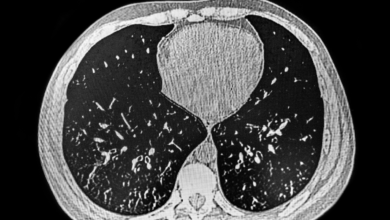Fatigue

What is Fatigue?
Fatigue is a feeling of weariness or exhaustion that is not relieved by rest. It can be a normal response to stress, illness, or lack of sleep, but it can also be a symptom of an underlying medical condition.
what are the symptoms of Fatigue?
Fatigue can manifest in various ways, including:
- Physical symptoms: Weakness, tiredness, difficulty concentrating, and decreased energy levels.
- Mental symptoms: Difficulty thinking clearly, poor memory, and irritability.
- Emotional symptoms: Feeling overwhelmed, anxious, or depressed.
who can suffer from Fatigue?
Anyone can experience fatigue, but certain factors may increase the risk, such as:
- Stress: Emotional, physical, or mental stress can contribute to fatigue.
- Lack of sleep: Insufficient or poor-quality sleep can lead to fatigue.
- Medical conditions: Many medical conditions, including anemia, thyroid disorders, and depression, can cause fatigue.
- Medications: Some medications can have fatigue as a side effect.
What are the types of Fatigue?
Types of Fatigue
Fatigue can be classified as:
- Acute fatigue: Short-term fatigue that resolves with rest.
- Chronic fatigue: Persistent fatigue that lasts for weeks or months.
- Central fatigue: Fatigue caused by problems in the brain or nervous system.
- Peripheral fatigue: Fatigue caused by problems in the muscles or other tissues.
Which diagnostic tests are available for Fatigue?
Diagnostic Tests for Fatigue
To determine the underlying cause of fatigue, your doctor may order:
- Blood tests: To check for anemia, infections, thyroid disorders, and other medical conditions.
- Physical examination: To assess your overall health and look for signs of underlying conditions.
- Sleep studies: To evaluate your sleep quality and identify sleep disorders.
- Psychological evaluation: To assess for depression, anxiety, or other mental health conditions.
What is the treatment of Fatigue?
Treatment of Fatigue
The treatment for fatigue depends on the underlying cause. However, some general strategies may help, including:
- Addressing underlying conditions: Treating any underlying medical conditions can help alleviate fatigue.
- Improving sleep: Ensuring adequate sleep and creating a conducive sleep environment can help reduce fatigue.
- Stress management: Techniques like relaxation exercises, meditation, and yoga can help manage stress and improve energy levels.
- Healthy lifestyle: A balanced diet, regular exercise, and adequate hydration can support overall health and energy levels.
Which diet I should take, if any ?
Diet for Fatigue
A healthy diet can help combat fatigue by providing essential nutrients and energy. Consider incorporating:
- Iron-rich foods: To prevent anemia, include lean meats, poultry, fish, fortified cereals, and leafy green vegetables.
- Vitamin B12: Essential for energy production, found in meat, poultry, fish, eggs, and dairy products.
- Complex carbohydrates: Provide sustained energy, found in whole grains, fruits, and vegetables.
- Hydration: Drink plenty of water to stay hydrated and prevent fatigue.
Which speciality of the doctor will treat Fatigue?
- Psychiatrist
Is Fatigue completely curable ?
The curability of fatigue depends on the underlying cause. Some types of fatigue, such as those caused by temporary illnesses or stress, may be completely curable. However, chronic fatigue syndrome or fatigue associated with underlying medical conditions may require ongoing management.
If you are experiencing persistent fatigue, it is important to consult with a healthcare professional for a proper evaluation and treatment plan.





